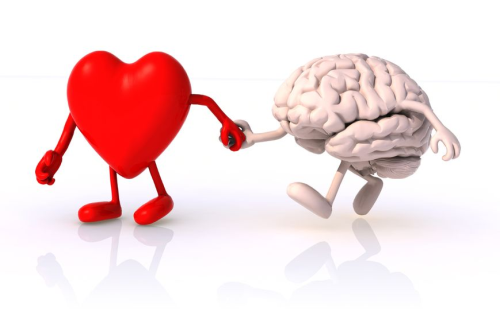Harout Nercessian
Human beings are endowed with both an emotional mind and a rational mind. Each mind has very important functions for a fulfilling life. When considering a decision, each mind may suggest a course of action that contradicts that of the other mind. For instance, your emotional mind can suggest that you marry a particular girl because you “love” her, whereas your rational mind, could confirm your parents’ advice and suggest to stay away from her because her background and interests are not compatible with yours.
Whom to listen to? Which mind’s advice is more reliable and will ensure the better results?
Both emotions and rational thinking are critical for a fulfilling life.
Our emotional minds motivate us to live; drive us to strive towards worthwhile goals; provide us with a moral compass; prioritize things for us; cause us to make major sacrifices to love, nurture and protect our children; and much more. The list is long. In other words, life would be unlivable without emotions.
The emotional mind was designed to make quick and bold decisions in emergencies when one’s security or desires/needs were threatened. In the jungle, the emotional brain would generate an instantaneous flight response when a roaring hungry lion appeared. Similarly, a father who sees his drowning son will instantaneously, without “thinking,” jump into the river.
Signals coming from the five senses are distributed to both the emotional and rational brains. The former receives a very small portion of the incoming information and is expected to make quick decisions. The rational mind, on the other hand, takes its time to analyze the large volume of incoming data along with experiential information in one’s memory to arrive at a decision.
The conclusions arrived at by the rational mind are more reliable, especially for strategic decisions, than those produced by the emotional mind because it is based on more information and a more comprehensive analysis.
In the example given above, in reaction to the “love” pleasures offered by the girl, the emotional mind suggests marrying her. She does not take into consideration the compatibility of her character, values, personality and interests with those of the man. The emotional mind does not consider if this couple will be happy together as a married couple when they start facing the financial and emotional pressures of married life. On the other hand, the rational mind will take these factors into consideration to make a suggestion that significantly increases the chances of a happy marriage.
I am not suggesting that one should ignore the emotional mind. After all, meaning, happiness and fulfillment are all channeled through emotions. The best course of action is to submit the emotional mind’s conclusion for a “second opinion” by the rational mind. Let the rational mind be the final judge.
For example, if your emotional mind recommends that you beat your boss for not granting you the vacation you deserve, please do consult what your rational mind has to say. Your emotional mind is not considering your children who must be fed and clothed.
For best results, it is essential not to allow the emotional mind to interfere in the workings of the rational brain. Emotions enjoy meddling with and influencing one’s rational thinking, however.
One final thought. This advice does not apply to emergency situations where quick action is needed. Do not take your time to thoroughly analyze the merits of saving a drowning child. The conclusions will arrive too late to be of any use.
















